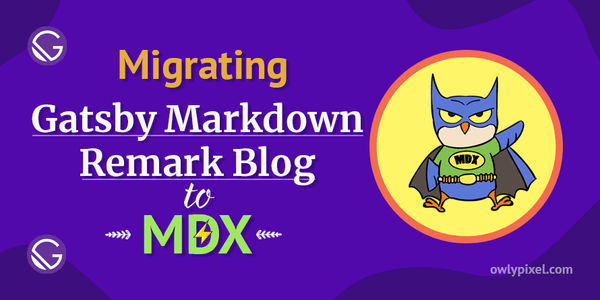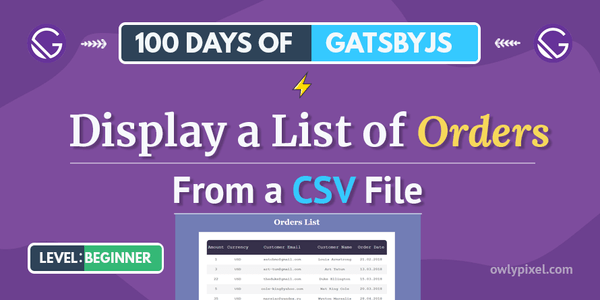How to Get a Job as a Junior Developer

If you’re new to coding, and in search for a job as a junior developer, then you’ve probably heard something like this: “No, we can’t hire you, we’re looking for senior people with experience”. Well, you may say, where would I get the experience, if no one hires me?
All right, first, let’s look at what is a senior developer? Usually, it’s somebody who has enough experience. It’s a person that can contribute to the project in a meaningful way pretty quickly and not cause any issues. A senior developer also can:
- handle the entire software development life cycle
- lead other developers
- self-manage his projects
So, someone who is a junior developer can apply some of the specific tactics and things that can help to grow their skills and find a developer job. Let’s discuss some of these tactics more closely.
Create a couple of side projects
One of the things that stop people from hiring you is that you don’t have that level of experience that they need. In that situation, one thing that can help you during your technical interview is to have a side project that you can show people. You can go to the interview and be really conversant with things.
Additionally, personal side projects are a unique source of personal growth and discovery. They will provide you with more opportunities to get noticed as a software developer.
Do a presentation at the users groups
You don’t really need to present a new iPhone or a new Tesla car, you only need to get up and talk about something basic on your topic for about 5 – 10 minutes.
Even if you’re not an expert on this topic, it doesn’t matter. The main thing is that you go there and you share what you know. And somebody else who knows just a little bit less than you can benefit from it.
Not to mention that it’s a great conversation starter. You don’t need to present yourself to everyone at the meeting. People kind of already knows who you are from your presentation. It gives you a chance to go and start a conversation with someone, find out what they’re about and what they do.
Work on your project in the company’s office
A lot of times companies that are hiring have empty desks. If you currently don’t have another job, it’s really doesn’t matter where you work on your project.
A great idea would be to actually go and meet people in their office, explain to them that you’re kind of new to programming and want to know what it’s like to be in an environment where programmers work.
Now, of course, some companies can just be like “Yeah, no way”, others may say “Sure, no problem”, because they’re not really doing anything that is a big secret or of high security.
The thing is, in this situation “No” just means “Try somewhere else”, it doesn’t mean that you’re out of luck forever.
But while you’re there, you get all kinds of opportunities. You get a chance to learn the system and contribute right away. In fact, you’re going to require less training than others.
If people go to lunch, you go with them, ask questions, get to know them more. By doing this, you’re building rapport, and eventually, someone may figure out that if they hire you for a couple of months, they’re going to be able to free up some of their time to do the more complex meaningful job, while you’ll take care about less important things.
Bring all of your online presence in one place
It’s a great idea to have a spot where people can see everything you do. Some people use their Twitter as the main platform and they have a pinned tweet with all of their links.
However, when you’re doing something on platforms like Twitter or Facebook you’re kind of doing this in a format that those platforms have. A better alternative to that would be to have your own website. If you have your own website, you can completely curate the design and showcase anything you want about yourself.
If you have your own personal website, you can go completely creative with it. Being able to have that kind of creative freedom to build your brand is the key.
If an employer can look you up and find everything they need quickly, that’s perfect. That’s all you can really ask. Because you want them to be able to see the full picture of you without having to hunt and ask, “Is this person actually good?”, “Does this person actually know how to do this?”. If they can reduce the amount of time looking you up, that’s totally a key.
Your personal website helps people to get a sense or your design style, the type of work that you’ve done in the past. You’re able to demonstrate your writing too, which is becoming more important for every craft. Being able to curate it, design it to match your style, show up your skills at the very best that they can be shown is a really smart way to approach your job search.
Visit career fairs
Career fairs are great events for job seekers and employers alike. Quite often they are held at conferences and similar events.
At a career fair, you go in and you start passing your resumes to the companies that are interested. Give them a quick tour at your resume, start with the highlights and then dig deeper if they’re interested. A lot of times companies would actually list which majors they are looking for.
If you’re going to a tech-oriented career fair they might be hiring frontend developers or backend developers.
When you’re there, go up straight to the recruiter. They want to hear the highlights of what you want to say.
Start with your name, your major and what’re you looking for. If you’re a student but you’re looking to drop out and work full time somewhere, they should know that.
Maybe you’re looking for an internship and you’re a self-taught developer it’s better to clarify that up front. Just be very specific, concise and get that information out quickly.
Another important piece of information would be whether or not you’re willing to relocate because a lot of companies will ask that whey they’re not based in your city.
Hot Tip: Do at least a little bit of research on the companies at the career fairs. Just look them up.
In conversation, you might mention that you liked their website design or logo. Just having those kinds of little bits in there can stir your conversation in a completely different direction.
Anyway, if you’ll get good at this, you’ll be able to pitch other things too and it will serve you for the rest of your life.
Why the lazy resume approach is a critical failure
Usually, the process of applying for a job goes like this: people read job boards until they find something that looks interesting, and then they apply for it.
The problem with this approach is that your resume ends up in a pile of all the other resumes. Then, the company pulls up the most promising ones (and it’s definitely not yours if you’re junior), and calls people up.
So, you find yourself in the system that prioritizes you very low, unless the company is actually looking for somebody like you.
It’s not surprising that with this approach, out of, let’s say, 50 people, none of them are calling you back.
Conclusion
I hope you are inspired to try some of the things that we’ve discussed above. Start your own project, participate in a hackathon, meet techies online and on the job, all this will inevitably lead you to success in landing your first job as a software developer.*









